#017 read around the world - scotland
“That was how he felt: that some of the threads of himself were connected but most of them weren’t, and that he was continually on the point of joining them all together without ever managing it.”
Books: Clear by Carys Davies
Yes, yes, I know Scotland is not technically a country, but this is my list and in the United Nations of Me, they are recognized as a sovereign state.
Context
I recently spent two weeks in Scotland, exploring most of what the country has to offer. We hit the Highlands, the Lowlands, and for a brief moment, Speyside. There is such a romanticized idea of Scotland in the collective memory, most of it courtesy of Sir William Scott and his contemporaries who are frequently credited with creating much of Scotland’s pride. I would often wonder how much of it was true.
After this trip, I can honestly say I get it. I found myself with a deeper understanding of why Scottish history and specifically the Highlands have been a permanent source of inspiration for authors everywhere. Why this country rouses the human mind to create creatures like the Loch Ness1 monster, the kelpies and the selkies.
Our book, Clear tells the story of a priest who, desperate for some money, takes a job evicting the last inhabitant of a remote island for the landowner. In order to understand the circumstances that led to his situation, there are two events we have to keep in mind. The first, the 1843 schism where ministers of the Church of Scotland split off to create the Free Church of Scotland, and the second, the Scottish Clearances that lasted from 1750 to 1860.
The Clearances disrupted everything about life in the Highlands and forced everything from clan structures to agricultural practices to shift and adapt to a new world. In Clear, we find ourselves in 1843 during one of the last waves of clearances that had been taking place for the last hundred years that evicted and displaced tenants to make way for sheep.
About the Book
Carys Davies, our author, stumbled upon this story one day while browsing the collection at the National Library of Scotland. She found an old dictionary of a long disappeared language once spoken in the Orkney Isles and Shetland, both to the north of Scotland. This language, called Norn, was slowly replaced by Scots after the islands were handed over to Scotland in the mid 15th century.23

Our protagonist John Ferguson is an out-of-work church minister fresh off the heels of the schism of 1983 where the ministers broke away from the Church of Scotland to create the Free Church of Scotland. But establishing a new faith requires money — for the church and the pews and the upkeep — and John had none.
In a desperate attempt to provide for his ministry and his wife, he takes a job evicting the last remaining inhabitant of a remote island near Shetland who only spoke a dying language of the isles. How he would communicate the eviction was beyond him. With little more than hopes and dreams, he journeys forth to meet the inhabitant, Ivar, a burly man who’s had little contact with the outside world. Once he arrives, John is injured and Ivar, knowing nothing about him, tends to his wounds and nurses him back to health.
What ensues is two men, surrounded by an unforgiving environment, creating a sort of pidgin language to understand each other. A point-and-name sort of affair leads to an unexpected friendship that is put to the test by the arrival of John’s wife and the boat meant to take them both off the island.

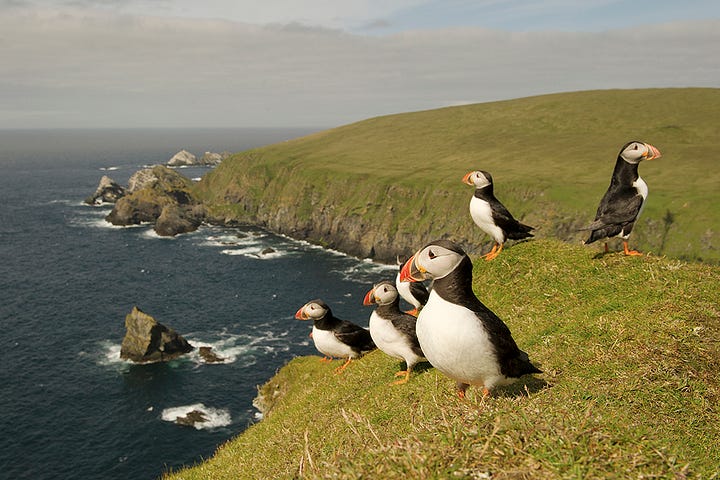
Another aspect of this book I found interesting was the role that Mary, John’s wife, plays throughout the book. Of her character, Carys Davies noted that “sometimes, in historical fiction, women are given an anachronistic degree of agency, and the women who interest me most are the ones who manage to be fiercely independent, resourceful, and brave within the formidable confines of their time.”4 Mary is all of the above. When she doesn’t hear back from her husband, she worries — but only for a moment. Mary decides to set out and find him, to make sure he was alive. She pawns possessions, buys a passage, and braves the North Sea in order to find him. A courageous action at any point in history, but even more so as a lone woman in the mid-1800’s.
I love language, and while words matter, what matters the most is the unyielding efforts we make to understand each other regardless of provenance. This book is a tentative and encouraging example of what makes us human. As Davies says, “happiness comes in many forms, but mostly I think the best definition is that it’s a kind of freedom, and I think most of my characters are seeking that in some way.”
Beyond the Book
The most moving place we visited in Scotland were the Clava Cairns to the east of Inverness, where you can find 4,000 year old Bronze Age tombs right next to the Culloden Battlefield.5 These tombs are circular stone mound chambers with a single entrance to a small chamber inside. The tops of these chambers have been worn down by time and war, but what remains is no less impressive. There is very little information beyond that.
What actually happened there and its meaning beyond the purpose of burial has also been lost to time. Right now is where I can assume you’re wondering how, out of everything Scotland has to offer, this place was the most impressive. And I can see how that would be the case, as in images it seems to be nothing more than piles of rocks, albeit laid in an interesting formation, but piles of rocks nonetheless.
But here is a place I would struggle to spend more than a few minutes in, where every step felt like a trespass, a remnant of thousands of years of spirits disenchanted with the kinds of people that set foot on their resting place. There was a heaviness to the site that is hard to put into words, but you could feel it creeping up your spine, lifting every last hair on your body. The trees — ancient. The land — ancient. As ancient as it was present. This felt to me like a place that never leaves you.
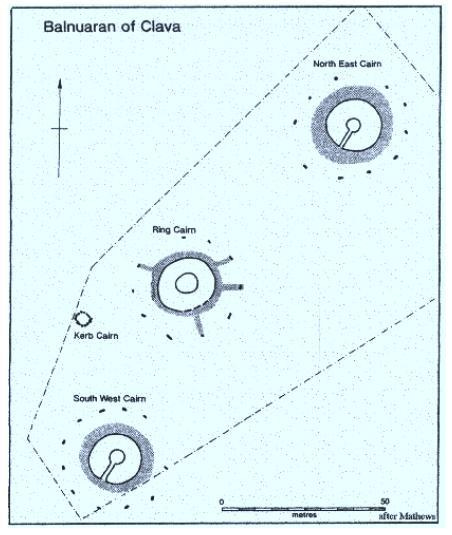
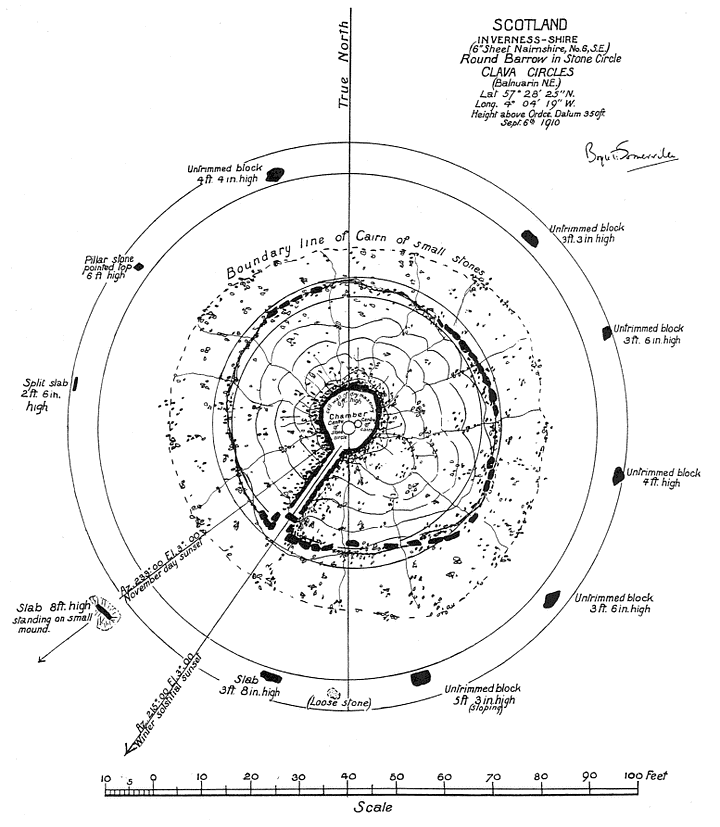
When we got home that night, I sat down to read The Bookseller of Inverness. A chapter where the main character is forced to hide from the Hanoverians at that same site. Of it he says:
“The moon was bright, and the jagged stones of the circle came into view, sentinels guarding access to the dead… it became clear from the look on the young man’s face that he was reluctant to go any further… It was a sacred place, and no good could come of violating it. And yet they had no choice.”
-
“The thin shafts of illumination served only to heighten the tension in the tomb, the precariousness of their situation and their consciousness of the third presence there with them, the soul from whom it had been built.”
I felt, if nothing else, vindicated for how deeply the Cairns had affected me, and glad I didn’t have to hide from the Redcoats within them.
Further reading: The King Over the Water by Desmond Seward, The Highland Clearances by Eric Richards
This post contains affiliate links :)
Nessie — I know you’re out there!!!
Barnes, Michael, 1984a: 'Orkney and Shetland Norn'. In: Peter Trudgill (ed.), Language in the British Isles, Cambridge, 352-66.
Shetland became part of Scotland in 1472, when it was annexed to the Scottish Crown along with Orkney following the failure of King Christian I of Denmark to pay the full dowry for his daughter Margaret's marriage to King James III of Scotland.
Bamber, Belinda. “C&TH Book Club: Clear by Carys Davies.” Country and Town House, 8 Mar. 2024
Historic site of the final, and brutal defeat of the Jacobite cause in 1875.


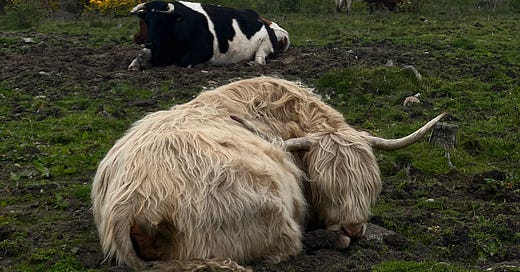



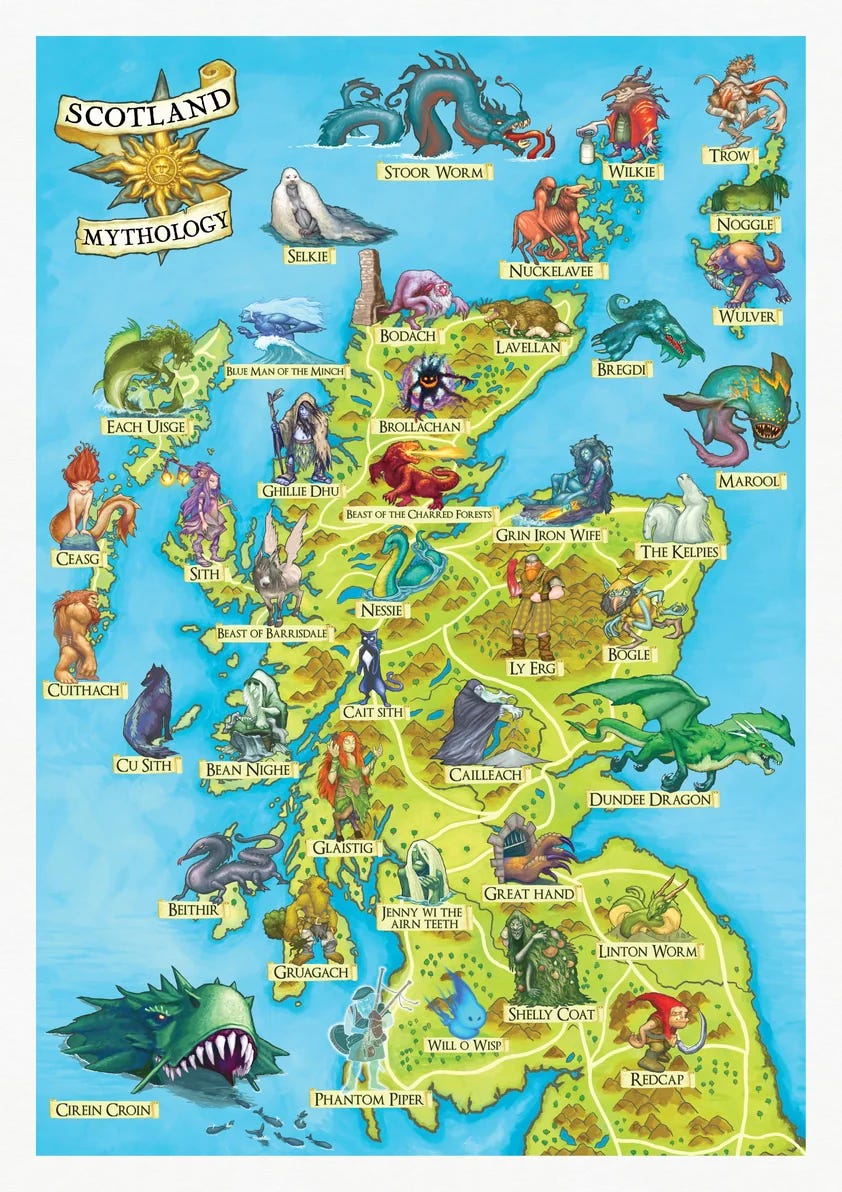
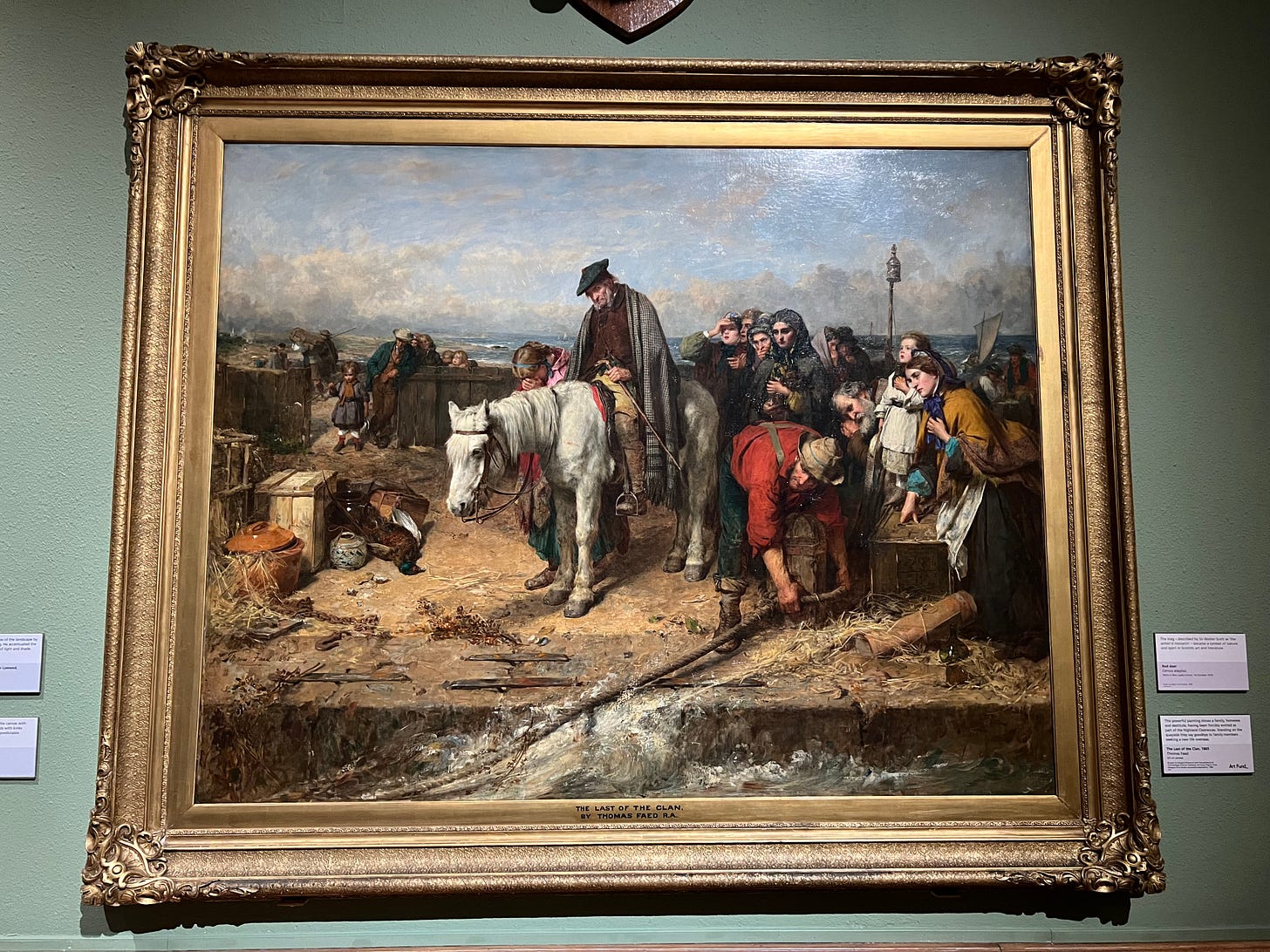

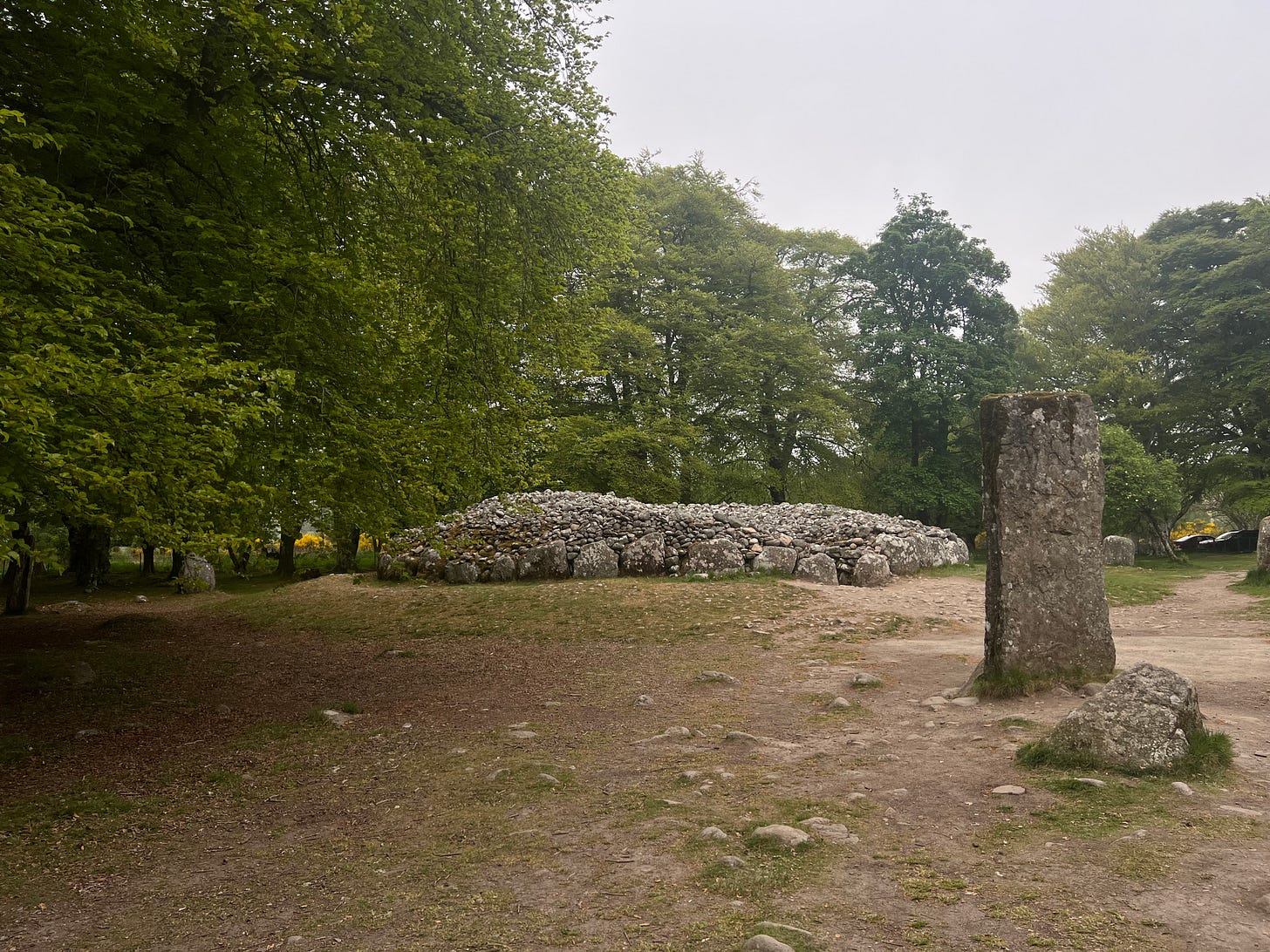
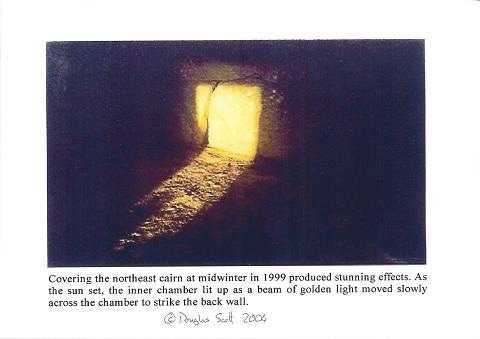

As someone who's been considering travelling to Scotland for a while now, this entry really hits. Made me want to buy tickets immediately. Thanks for the recs!
Wow. I’ve been to Clava Cairns also - it’s steeped in memory. Not sure I’ve felt anything quite like it.